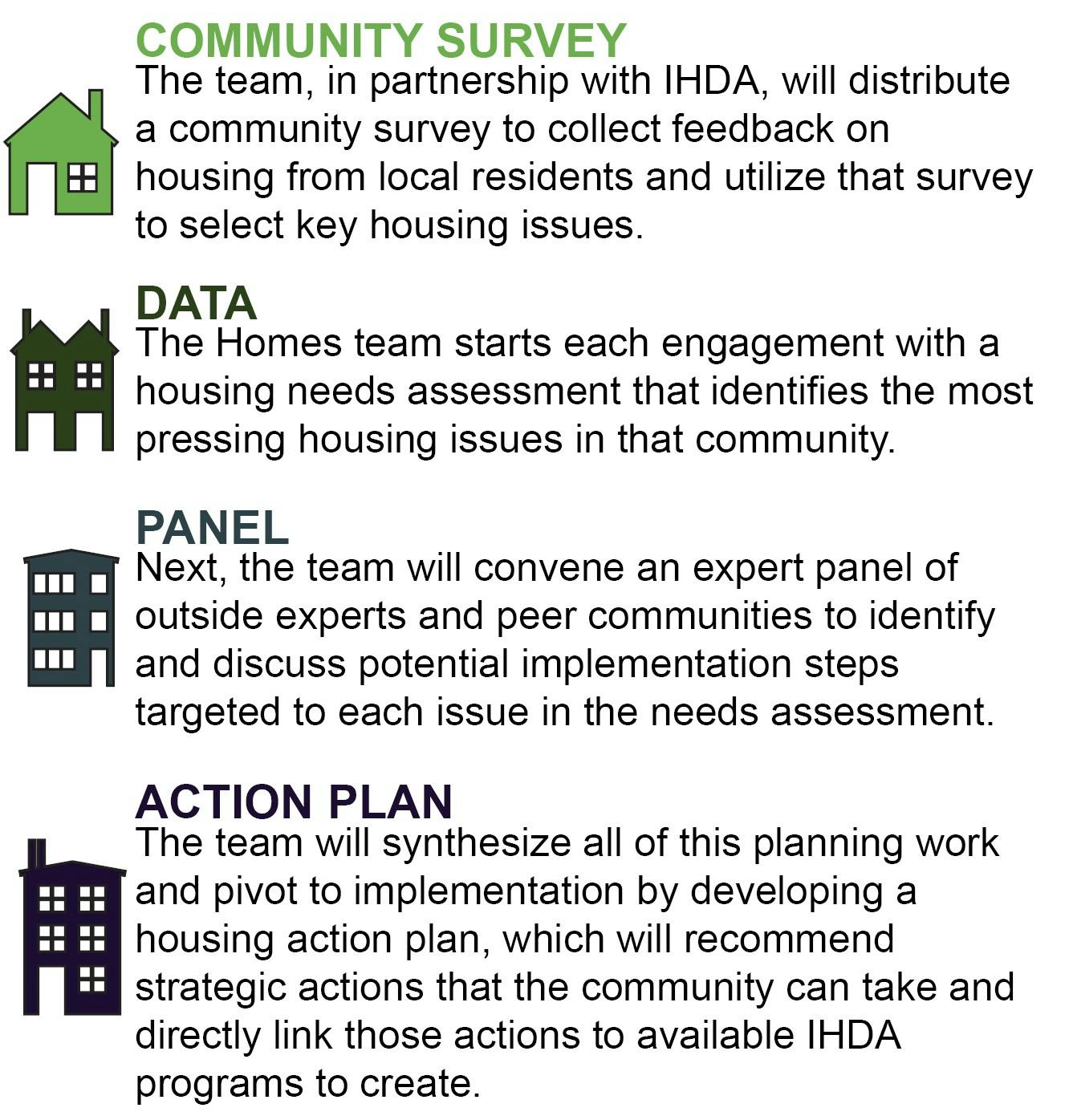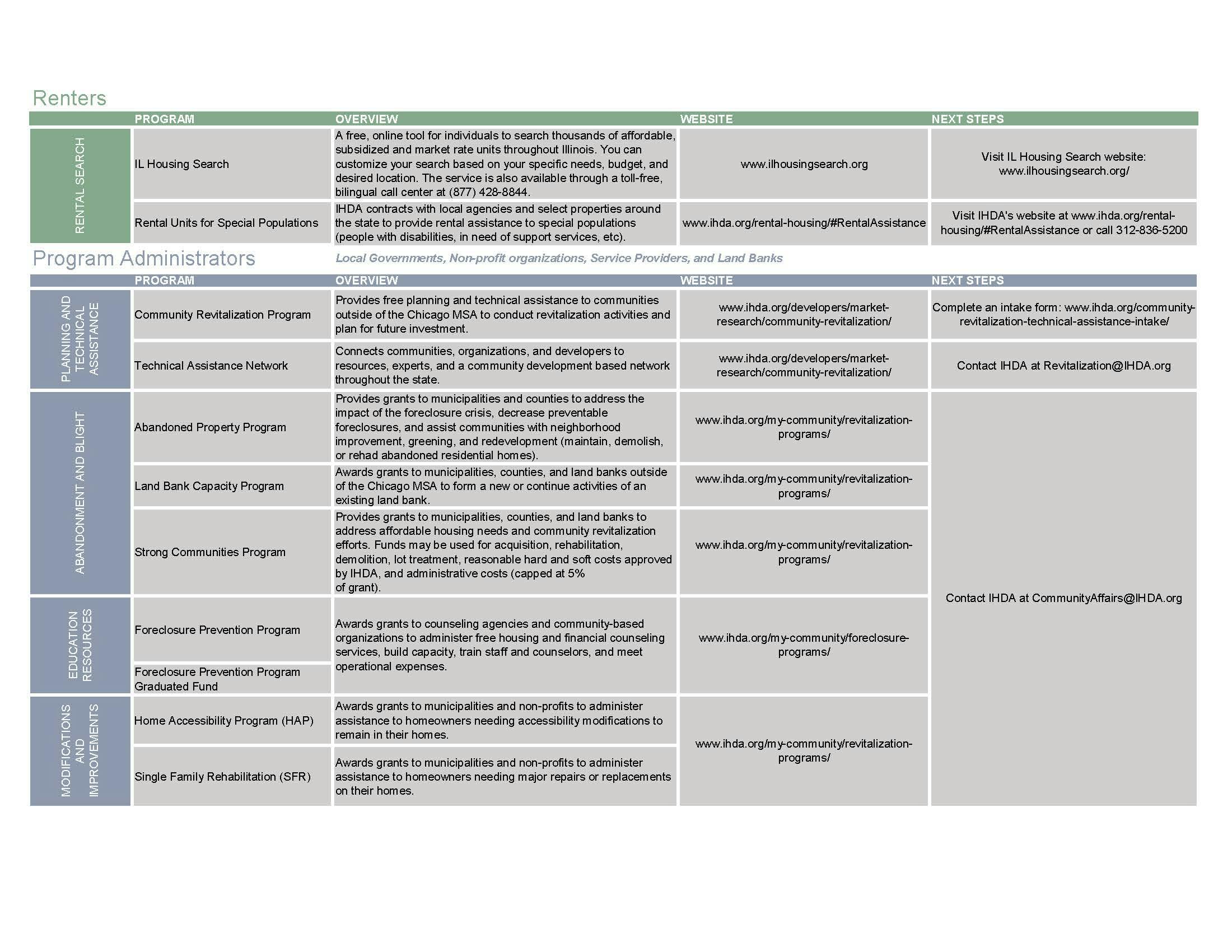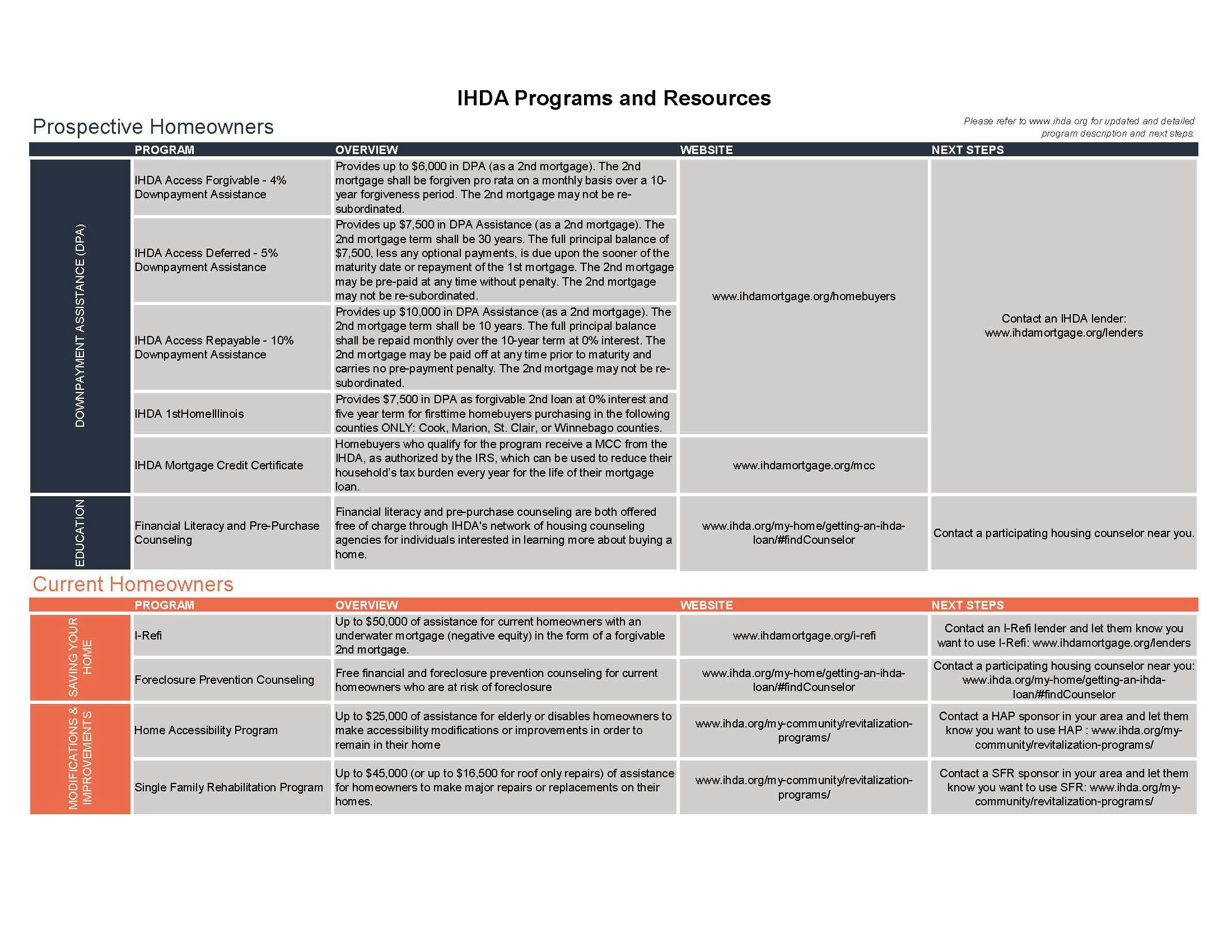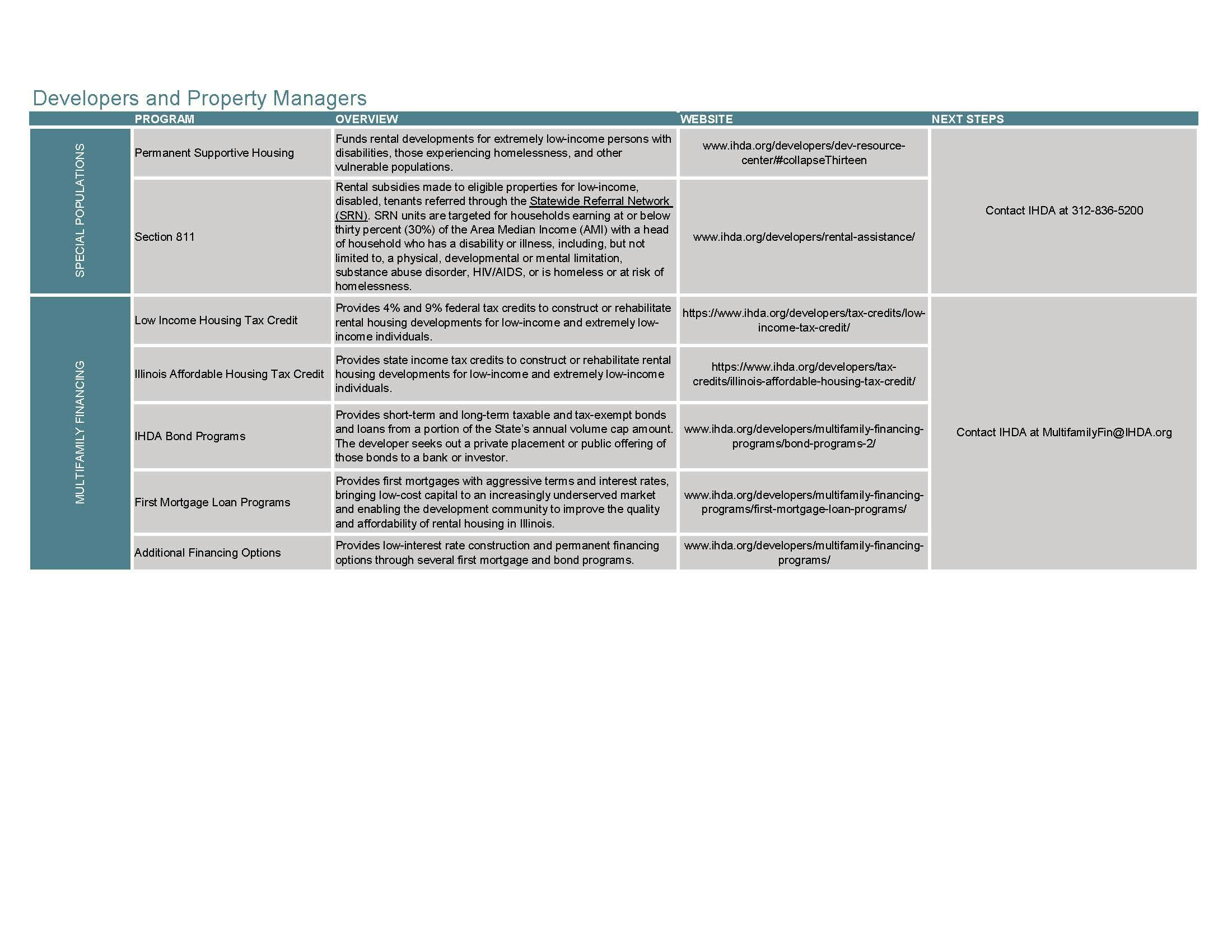Homes for a Changing Region
Consultation has concluded

Program Overview
Homes for a Changing Region ("Homes") enables municipal leaders to chart future demand and supply trends for housing in their communities and develop long-term housing policy plans. These plans aim to create a balanced mix of housing, serve current and future populations, and enhance livability.
Our team is a partnership between the Chicago Metropolitan Agency for Planning (CMAP) and the Metropolitan Mayors Caucus (MMC) and is funded by the Illinois Housing Development Authority (IHDA). Our assistance is free thanks to generous funding from the Illinois Housing Trust Fund.
What are the roles and responsibilities?
MMC and CMAP ask each participating municipality to agree to the following roles and responsibilities before we initiate the planning process.
Municipal Role: The municipality will be the direct recipient of all housing planning services provided by Homes. The municipal responsibilities will include:
- Designating a lead contact to plan all meetings with MMC and CMAP;
- Identifying kickoff meeting participants, which could include elected officials, staff, and/or
- outside stakeholders;
- Identifying focus group participants in coordination with MMC and CMAP, which will provide
- recommendations for types of
- Scheduling dates and times for the needs assessment, focus group, expert panel, and final action
- plan presentations;
- Reviewing and facilitating feedback for the final housing action plan; and
- Ensuring that all requested information is provided to MMC and CMAP in a timely fashion.
MMC and CMAP Role: MMC and CMAP comprise the primary partners in the Homes for a Changing Region team and will lead all housing planning services. MMC and CMAP work collaborative on the process and joint responsibilities include:
- Developing a needs assessment that includes data analysis of housing trends and key issues;
- Organizing a focus group to provide additional stakeholder input on housing needs;
- Organizing an expert panel to provide expert recommendations on local housing trends;
- Writing a housing action plan that summarizes the needs assessment, findings from focus group
- and community survey, and recommendations from the expert panel;
- Managing up to four meetings, which include the presentation of or facilitation of the deliverables
- listed above; and
- Facilitating implementation assistance as needed.
IHDA Role: IHDA serves as the funding entity for Homes through a contribution from the Illinois Housing Trust Fund. IHDA also provides supportive services through its Community Revitalization program. Responsibilities include:
- Facilitating a resident community survey to identify key housing needs; and
- Providing input on all action plan analysis and recommendations.
Homes for a Changing Region Program History and Timeline
The Homes for a Changing Region project was launched in 2004 by Chicago Metropolis 2020 and the Metropolitan Mayors Caucus. The initial Homes report, released in 2005, compared likely demand and supply of housing in metropolitan Chicago and identified the mismatch that would occur under current housing policies.
In 2006, The Homes team decided to test out the future planning ideas presented in the initial report by working with select group of representative communities within the metropolitan area.
In 2010, The Homes team added two new partners—the Metropolitan Planning Council (which succeeded Chicago Metropolis 2020) and the Chicago Metropolitan Agency for Planning (CMAP)—and began to work with sub-regional clusters of communities.
Since 2018, the Illinois Housing Development Authority (IHDA) has provided generous funding to the Homes program through the Illinois Affordable Housing Trust Fund. In 2018, MMC rejoined the Homes team and worked alongside CMAP, MPC, and IHDA to develop housing policy plans alongside municipalities.
In 2021, MMC, IHDA, and CMAP added a community survey to the Homes process in order to capture a diverse range of stakeholder perspectives on community characteristics. Additionally, Homes action plans are now designed with a focus on creating recommendations for communities that are readily implementable while still building towards long-term housing goals.










